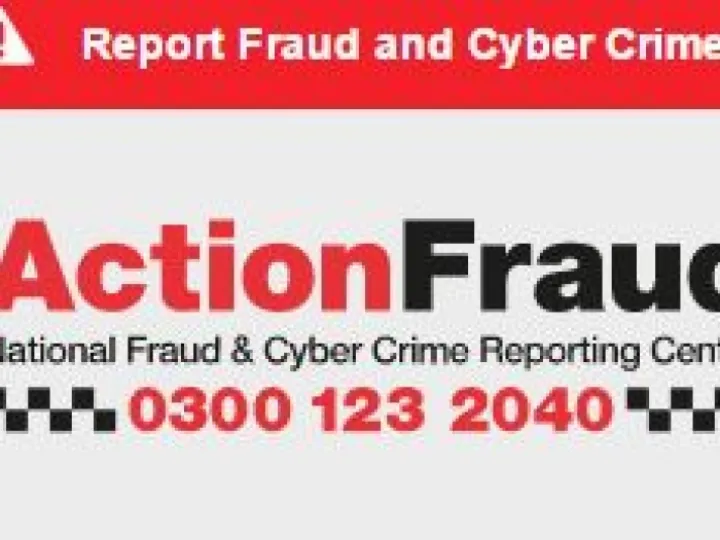ACTION FRAUD
ACTION FRAUD
On an ongoing note there continues to be a number of fraudulent scams reported purporting to be from organisations such as British Telecom, HMRC, TV Licencing and High Street Banks to name a few.
The below advice from Action Fraud gives details of how not to get caught out by scammers and contact information.
1. Do not give any personal information (name, address, bank details, e-mail or phone number) to organisations or people before verifying their credentials.
2. Make sure your computer has up-to-date anti-virus software and a firewall installed.
Ensure your browser is set to the highest level of security and monitoring to prevent malware issues and computer crimes.
3. Many frauds start with a phishing email.
Remember that banks and financial institutions will not send you an email asking you to click on a link and confirm your bank details. Do not trust such emails, even if they look genuine. You can always call your bank using the phone number on a genuine piece of correspondence, website (typed directly into the address bar) or the phone book to check if you're not sure.
4. Sign-up to Verified by Visa or MasterCard Secure Code whenever you are given the option while shopping online.
This involves you registering a password with your card company and adds an additional layer of security to online transactions with signed-up retailers.
5. You should regularly get a copy of your credit file and check it for entries you don't recognise. Callcredit, Equifax and Experian can all provide your credit file.
An identity protection service such as ProtectMyID monitors your Experian credit report and alerts you by email or SMS to potential fraudulent activity. If its fraud, a dedicated caseworker will help you resolve everything.
6. Destroy and preferably shred receipts with your card details on and post with your name and address on.
Identity fraudsters don't need much information in order to be able to clone your identity.
7. If you receive bills, invoices or receipts for things that you haven't bought, or financial institutions you don't normally deal with or contact you about outstanding debts, take action.
Your identity may have been stolen.
Stay in control, destroy your receipts and posts with you name on. If you receive a bill, invoice, or receipts for things you haven't brought or normally deal with, take action.
Your identity may have been stolen.
8. Be extremely wary of post, phone calls or emails offering you business deals out of the blue.
If an offer seems too good to be true, it probably is. Always question it.
9. If you have been a victim of fraud, be aware of fraud recovery fraud.
This is when fraudsters pretend to be a lawyer or a law enforcement officer and tell you they can help you recover the money you've already lost.
10. If you need advice about fraud or cybercrime contact Action Fraud on 0300 123 2040.
Quick Links
Village Map
Get In Touch
MalpasOnline is powered by our active community.
Please send us your news and views using the button below:


